Gone are the days when books used to be the only source for learning Java. Instead, quality video courses have risen in popularity with the rapid spread of the internet and smartphones. Of course, this is more true in the case of computer languages like Java and Python. However, books still form a core constituent of learning and the best Java Books are still a valuable resource.
10 Best Java Books for Beginners and Advanced Programmers
So, you are someone who wants to learn the basics of the Java programming language. Or, you are a Java programmer looking to hone your skills. In either case, you might be spoilt for choices if you look at the books available. Breathe easy, as we are here to narrow down your options with the list of the top 10 Java books out there.
Here’s a list of the top 10 Java Books;
1. Head First Java
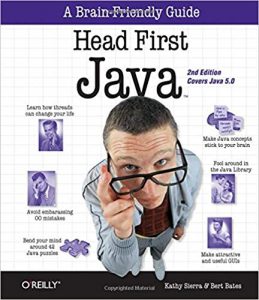
- Originally Published: 2003
- Author: Kathy Sierra, Bert Bates
Description: This book is perfect for someone starting with Java. It explains the fundamentals of the language in a beginner-friendly language. The book takes a visual approach to learning, which makes it one of the best Java books for beginners. In fact, some have gone as far as calling it ‘The Bible of Java’.
The book explains basic terms like class, thread, object, etc. Not only that, but it also introduces the reader to more advanced terms such as swing, Networking, Java IO, etc., through quizzes, puzzles, code exercises, and brain teasers. However, the book has some glaring disadvantages. It hasn’t been updated after Java 5.0. As such, if you want to learn the latest concepts introduced by Java SE 8, you might need to refer to another book on the list.
2. Effective Java
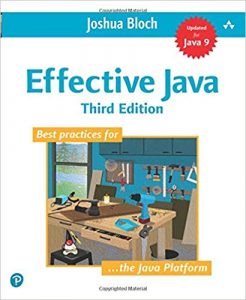
- Originally Published: 2001
- Author: Joshua Bloch
Description: This book can prove beneficial to every Java learner level, be it a beginner, intermediate or advanced programmer. It covers various topics from Java best practices like static factories, equals, and hashcodes to new designs patterns, autoboxing, and annotations.
Joshua Bloch, the author, has provided short examples to illustrate the concepts. He also offers challenging exercises to check if the reader has understood those concepts. The latest edition of the book is constantly updated, which makes it relevant. And, the fact that the newest edition has an entire chapter on Lamdas is a testament to that.
3. Java The Complete Reference
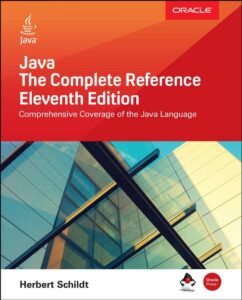
- Originally published: 2020
- Author: Herbert Schildt
Description: If it was ordered to burn all the books on Java except one, then this is the one you should save. You can consider it as a comprehensive book on all the features and aspects of Java. This book encapsulates the fundamentals with all the key libraries, features, and usages through various methods, interfaces, and classes in detail.
Released by the Oracle Press, the book is periodically updated following the update in the version of Java. The latest is the 11th edition, which covers all the fundamentals with the newly added features of Java 11.
4. Thinking in Java
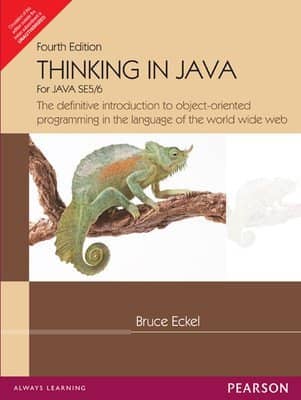
- Originally Published: 1998
- Author: Bruce Eckel
Description: Make way for “Thinking in Java,” which is one of the most popular books in Java and object-oriented programming. This is another book for the advanced level learners of Java.
As suggested by the title of the book, the primary focus of the author is to make you think in Java. And, he accomplishes that with the help of over 500 Java programs included in the book. Best of all, the given programs run without any errors.
The book also explains the thought process that was behind the development of the language. It also does an excellent job of explaining why it works the way it does. All in all, the book is a must-have for Java programmers.
5. Core and Advanced Java
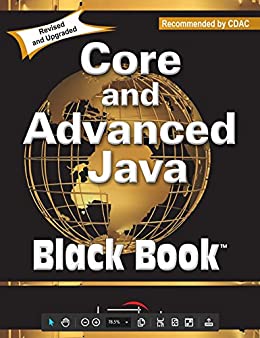
- Originally Published: 2008
- Author: Dr R. Nageswara Rao
Description: This is probably the best book for students on Java. It covers a variety of interview questions that comes in handy for interview preparations.
With the help of short and straightforward examples, concepts are explained to the readers. In addition, it has topics like software packaging, API documents, interface, and abstract classes. To top it all, it is updated to Java 8.
6. The Java Language Specification
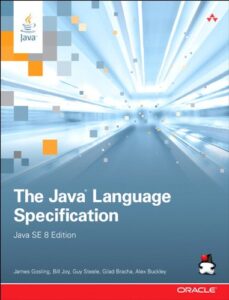
- Originally Published: 1996
- Author: James J. Gosling, Bill Joy, Jr. Steele, Guy L., Gilad Bracha, Alex Buckley, Guy L. Steele Jr.
Description: Written by the creator of Java, James Gosling himself, this book provides an in-depth analysis of the language. It is a must-have for all serious developers of Java. In addition, many programmers consider it as a technical reference to the subject.
The author explains the concepts with the help of clear, concise, real-world examples. That makes for a fun way to learn the concepts even for a seasoned Java developer. In addition to this, the new features of Java SE 8 like lambda expressions, default methods, type annotations, and repeating annotations are also covered in the book.
7. Core Java
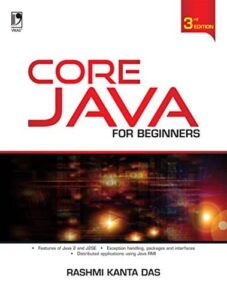
- Originally Published: 2007
- Author: Cay S. Horstmann, Gary Cornell
Description: This reference book on the language explains the basic concepts. The book is written in simple language, making it very beginner-friendly. And, the concepts are imparted with detailed examples.
The primary objective of the book is to develop an ability to write codes. The latest edition includes the newest features of Java SE 9,10 and 11 like lambda expressions, exception handling, and interfaces.
8. Java Concurrency in Practice
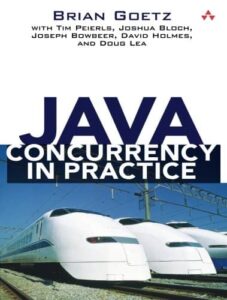
- Originally published- 2006
- Author – Brian Goetz with Tim Peierls, Joshua Bloch, Joseph Bowbeer, David Holmes, and Doug Lea
Description- As the name suggests, “Java Concurrency in Practice” deals with the topic of Concurrency. While the book mentions Java 5.0, don’t be fooled by it. it’s important to note that the concepts discussed are still very relevant.
You can think of the book as a must-have for any ardent Java programmer. It does an excellent job of trying to explain complex topics like concurrency and multithreading simply and lucidly.
However, one needs to have a basic understanding of Concurrency and multithreading to get a better result out of the book. While the content may seem advanced to any beginner, the book is a robust package on concurrency. Moreover, it focuses on concurrency problems like deadlock, starvation, and race conditions.
9. Head First Object-Oriented Analysis Design
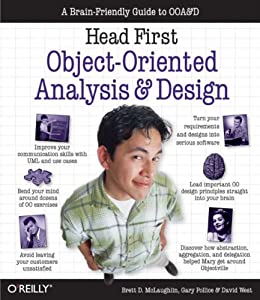
- Originally Published- 2006
- Author – Brett D. McLaughlin, Gary Pollice & David West
Description- The Headfirst series is one of the most popular book series in Java. The book and the other two in the series, namely, Head First Java and Head First Designs, are comprehensive guides to the language.
“Head First Object-Oriented Analysis Design” includes different techniques used in object-oriented programming. The book also contains coding for interface and it makes a better coder out of the reader by the end of it.
10. OCA Java SE 8
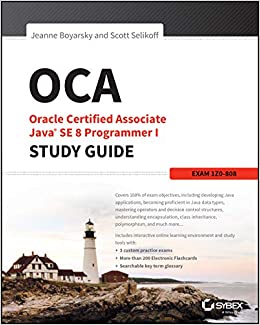
- Originally Published: 2014
- Author: Jeanne Boyarsky, Scott Selikoff
Description: This book is not for beginners. As the name suggests, it is explicitly intended for anyone who wants to obtain a Java SE 8 Programmer Ⅰ Certification. Naturally, anyone with a fundamental knowledge of Java would be able to churn out more out of this book.
It provides in-depth knowledge of the topics and challenging exercises to test your preparation for the certification exams. However, if you are new to Java, it would be better to read a basic book first.
Conclusion
No list of the best Java books could be an exhaustive list, and neither does this one claim to be one. However, if you are someone trying to learn Java programing language or even an intermediate or expert level programmer, some of the books on the list could prove to be more than handy.
People are also reading:

